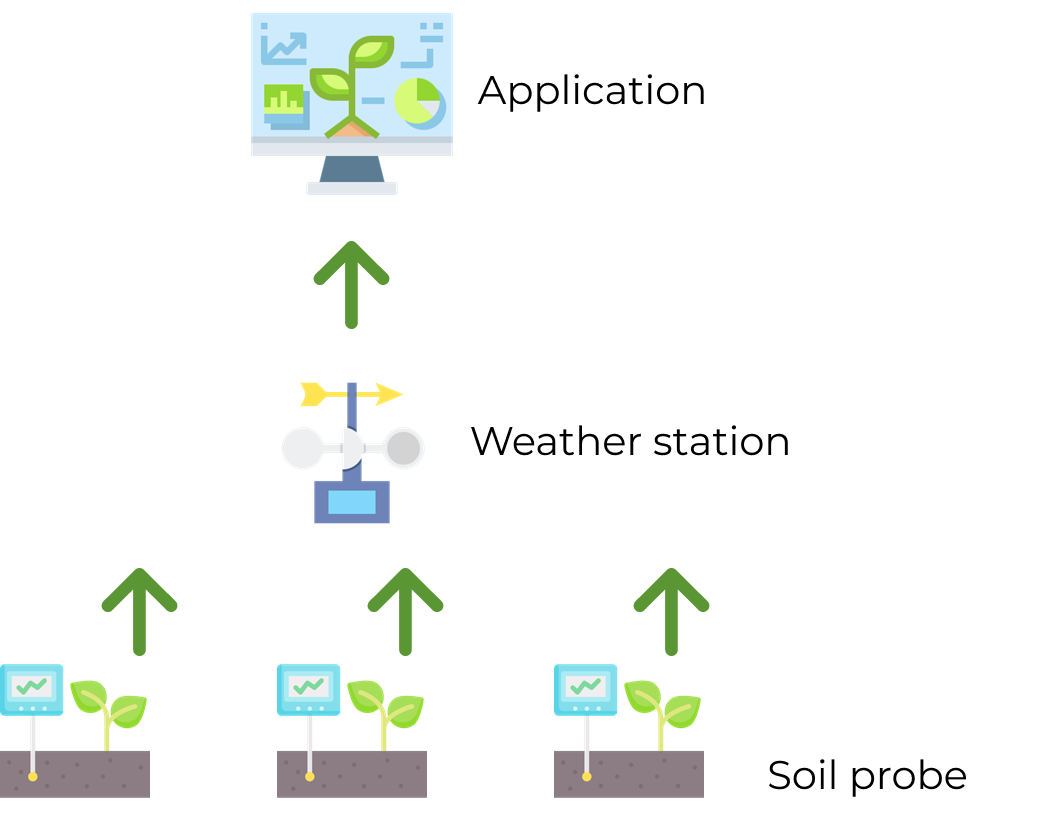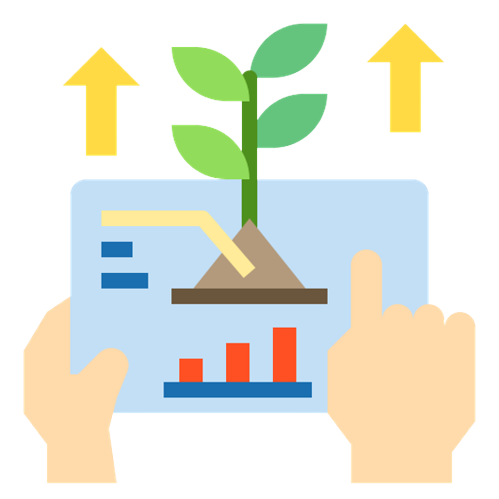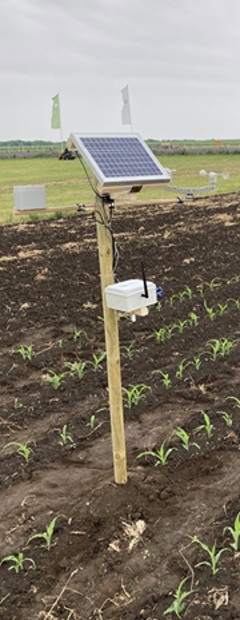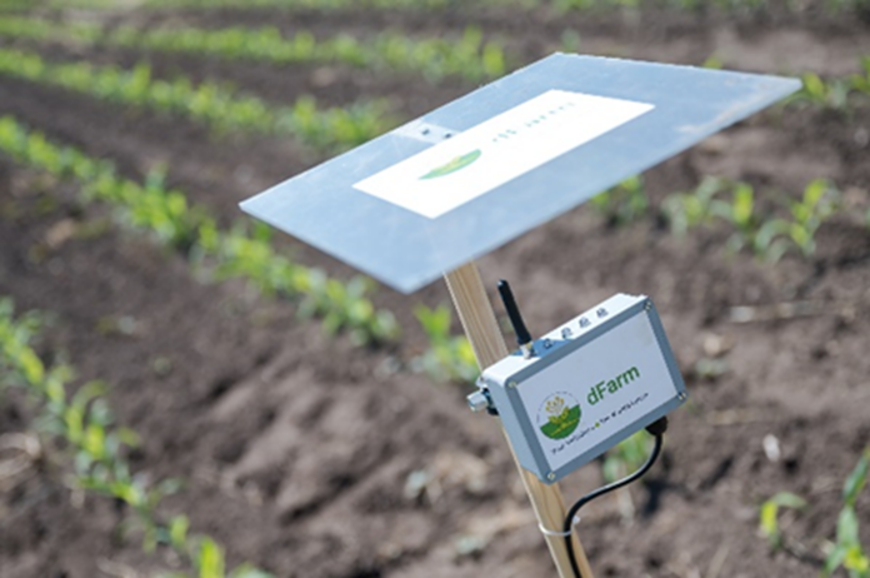

An agricultural sensor network is an IoT system consisting of sensors that are used in an agricultural environment. The sensors take measurements such as soil moisture, temperature, humidity, soil moisture, temperature, moisture and solar radiation, and then transmit this data to a central server or the cloud. The data collected can be used by farmers to optimise production and use resources more efficiently.





Overall, the use of weather stations is very important for farmers, as they can help them to produce more efficiently and economically, and to minimise environmental impacts.
